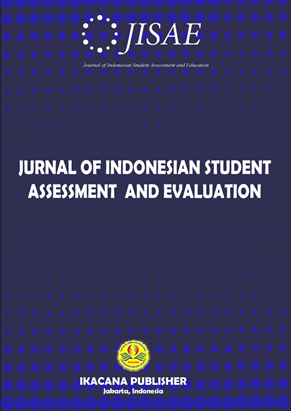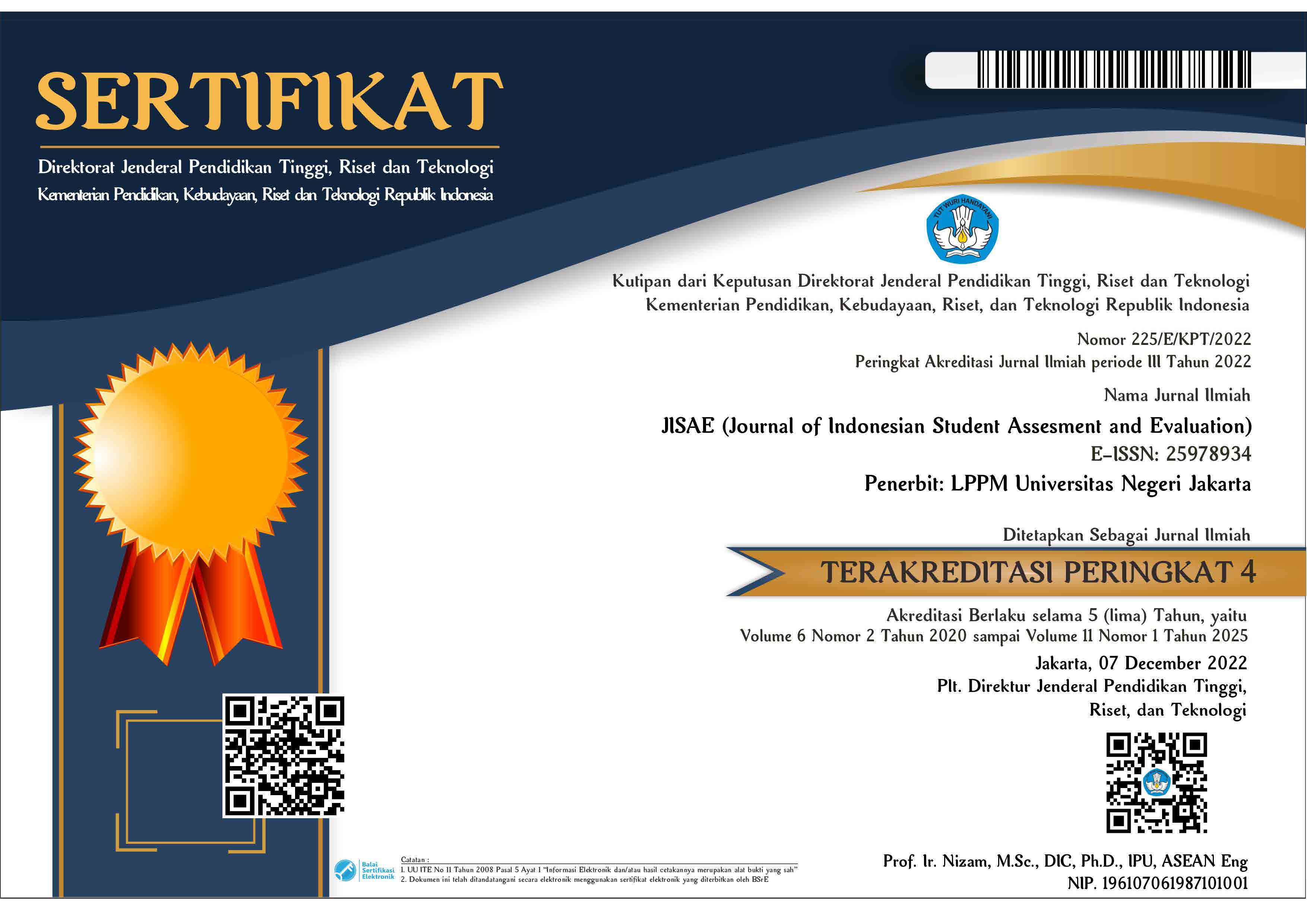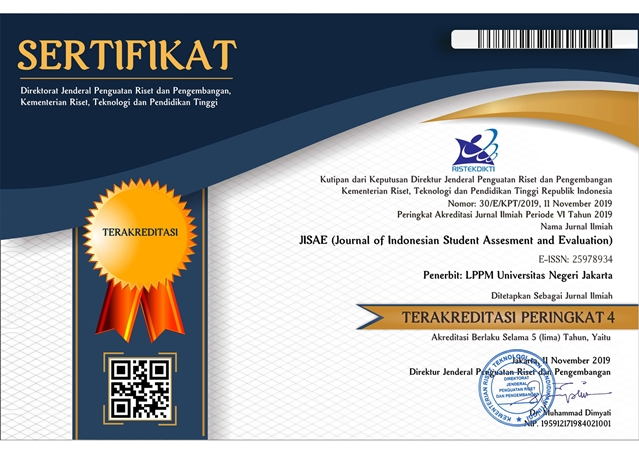CONTENT VALIDITY AND CONSTRUCT VALIDITY ON THE DEVELOPMENT OF ACADEMIC ANXIETY QUESTIONNAIRE
DOI:
https://doi.org/10.21009/jisae.v7i2.25889Keywords:
Development, Questionnaire, Academic Anxiety, ADDIE, CFA, Content Validity, Construct Validity, ReliabilityAbstract
This study was a research and development which aimed to develop an academic anxiety questionnaire for students through content validity and construct validity testing using ADDIE model. This research involved 205 students in the first trial phase and 220 students in the second trial phase. They were selected using the cluster random sampling method. The data were collected using a survey method by distributing the questionnaires using the google form. The results showed that the academic anxiety questionnaire was developed by containing the dimensions of cognitive symptoms, emotional symptoms, and physical symptoms. The coefficient of content validity through the Aiken's V by four experts for each item was more than 0.200, while the reliability was 0.893. The first trial phase showed that eight items dropped through the Confirmatory Factor Analysis (CFA) with Construct Reliability (CR) and Variance Extracted (VE) values for each measurement model were 0.881 and 0.202, while the CR and VE values for the structural model were 0.888 and 0.730. The second trial phase showed that four items dropped with the CR and VE values for the measurement model were 0.873 and 0.213, while the CR and VE values for the structural model were 0.956 and 0.880. The final academic anxiety questionnaire contains 27 items with a modified Likert scale (four choices).











